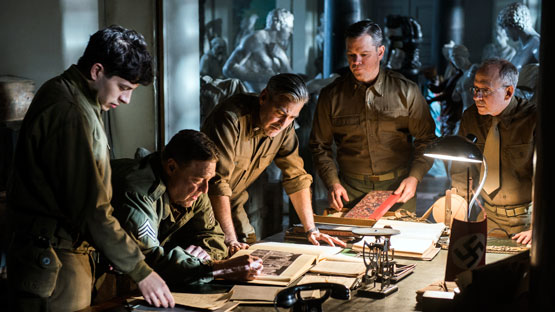Directed by Alfonso Cuarón, “Gravity” is more than just a film; it’s an experience – a breathtaking ride through the cosmos that leaves viewers gasping for air. The 2013 space thriller, starring Sandra Bullock and George Clooney, perfectly blends visceral action and somber introspection, ultimately culminating in a riveting cinematic journey.
Set almost entirely in space, “Gravity” is a visual and sensory tour-de-force that truly tests the boundaries of cinema. Made evident from its captivating thirteen-minute unbroken opening shot, the film challenges our perceptions and immerses us into something eerily beautiful yet profoundly terrifying – the eternal vastness of space.
The highly acclaimed Sandra Bullock delivers a memorable performance as Dr. Ryan Stone, a biomedical engineer on her first shuttle mission. Throughout the film, she expertly toes the line between vulnerability and determination. Embarking on a journey of survival, Bullock’s character showcases a wide range of emotional depth, creating a connection highest level of empathy with the audience. In contrast, George Clooney’s cocky veteran astronaut, Matt Kowalski, provides brief moments of levity and charm. His reassuring presence establishes a stark contrast that further emphasizes the dire repercussions of their situation.
Brilliantly directed by Alfonso Cuarón, “Gravity” avoids falling into the trap of overused space movie cliches. He presents an intense, yet intimate portrayal of space, accentuated by painstakingly detailed visuals and ambitious cinematography. The tension-filled storyline and the figurative representation of rebirth is tied seamlessly together by Cuarón, crafting a tale that explores the monumental human will to survive.
The technical achievements in “Gravity” are undeniably astounding, pushing the cinematic frontier. And for such an achievement, cinematographer Emmanuel Lubezki’s work must not go unnoticed. The outstanding use of lengthy shots and the 3D technology thrusts the audience right into the nerve-wracking scenario unfolding on screen, eliminating the line between fiction and reality. The groundbreaking visual effects, combined with Steven Price’s chilling score, add a layer of immersion that is rarely seen in films.
Yet, despite its technological triumphs, “Gravity” remains a deeply human story. Amidst the grandeur of its setting, it’s the personal journey of Bullock’s character that stands out. She is thrust from an environment of control and predictability into a world where none of those aspects exist. Her struggle for survival in the face of insurmountable odds explores themes of resilience, rebirth, and the raw power of human tenacity.
However, it must be noted that “Gravity” is not without minor flaws. There are moments where the narrative feels a tad convenient, presumably to propel the plot forward. Additionally, while the film’s commitment to realism is commendable, some viewers may find scientific inaccuracies that could detract from the overall experience. Meanwhile, the at-times saccharine dialogue can feel heavy-handed and may undermine the otherwise tense atmosphere.
Regardless of these minor shortcomings, “Gravity” is still a technical masterpiece. The extraordinary visual effects, complemented with top-tier performances and emotive storytelling, ensure the film’s significant place in cinematic history. It’s a film that demands to be experienced on the biggest screen possible, with the stereoscopic 3D further amplifying the sense of scale and awe.
In conclusion, Alfonso Cuarón’s Gravity is an unforgettable exploration of humanity’s primal instinct for survival set against the backdrop of the cosmos. It juggles high-stakes drama with breathtaking visuals, creating a cinematic experience that is as intellectually stimulating as it is emotionally potent. Despite minor narrative weaknesses, “Gravity” is a wonderful tribute to human resilience and the majestic terror of space, ensuring that viewers will be talking about their experience long after they leave the theatre.
As far as films about space go, “Gravity” certainly sails through the cosmos, delivering a cinematic experience that is truly out of this world.




